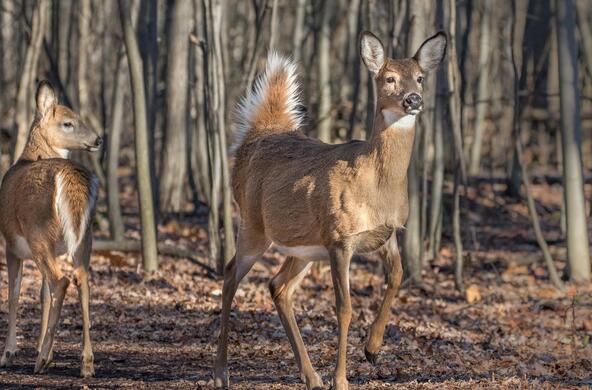Speaker: Dr. Nyeema Harris, Assistant Professor and Director of Applied Wildlife Ecology Lab, University of Michigan
Full title: Tradeoffs of Risks and Rewards by Carnivores in Dynamic Urban Environments
The rapid expansion of urbanization across the globe induces restructuring of ecological communities. As apex predators are both particularly sensitive to anthropogenic disturbance and essential for maintaining ecosystem function, understanding adaptive capacity or phenotypic plasticity informs their resiliency in cityscapes. Carnivores must balance a myriad of risks while exploiting a plethora of natural and human subsidies in cities. From hyenas in Addis Ababa to leopards in Mumbai, large carnivores are definitively present and thus exerting some top-down pressures in cities around the world. In a North American context, reports of mountain lion sightings are increasing in the western US. Overall, coyotes have ascended to apex status with the release from dominant competitors like gray wolves in urban environments throughout the US. Here, Dr. Nyeema Harris of the Applied Wildlife Ecology Lab at the University of Michigan will discuss trophic ecology and behavior in mammalian carnivores occupying these dynamic habitats, underscoring strategies employed to promote their coexistence and persistence with human populations. She will draw from synthetic efforts and empirical work from an ongoing project in Detroit, Michigan as well as present a coupled socio-ecological framework for assessing the regulatory capacity of predators to alter the distribution and prevalence of zoonotic disease risks.






